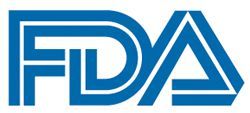FDA Grants Accelerated Approval to Tovorafenib for Pediatric Relapsed/Refractory BRAF+ Low-Grade Glioma
The FDA granted accelerated approval to tovorafenib for pediatric patients relapsed/refractory low-grade glioma with a BRAF fusion/rearrangement or a BRAF V600 mutation.
FDA

The FDA has granted accelerated approval to tovorafenib (Ojemda) for the treatment of pediatric patients 6 months of age and older with relapsed or refractory low-grade glioma harboring a BRAF fusion or rearrangement, or a BRAF V600 mutation.
This approval marks the first systemic therapy indicated for pediatric patients with low-grade glioma harboring BRAF rearrangements, including fusions.
The regulatory decision was supported by data from the phase 2 FIREFLY-1 trial (NCT04775485), which showed that patients treated with tovorafenib (n = 76) experienced an overall response rate (ORR) of 51% (95% CI, 40%-63%) and median duration of response (DOR) of 13.8 months (95% CI, 11.3–not estimable).
“[Tovorafenib] ushers in a new day for children living with relapsed or refractory pediatric low-grade glioma, and we are pleased that we can deliver a new medicine for these patients in desperate need of new treatment options. Moreover, [tovorafenib] is the first and only FDA-approved medicine for children with BRAF fusions or rearrangements, which are the most common molecular alteration in pediatric low-grade glioma,” Jeremy Bender, PhD, chief executive officer of Day One Biopharmaceuticals, stated in a news release.2 “We are very proud that our first approved medicine addresses this serious and life-threatening disease of childhood and adolescence. We are grateful to the pediatric low-grade glioma community, including patients and their families, study investigators, non-profit organizations, and advocacy groups, for their collaboration and support as we strive to close the innovation gap for children with cancer awaiting new treatments.”
The multicenter, open-label, single-arm FIREFLY-1 trial enrolled patients 6 month to 25 years of age with relapsed or refractory pediatric low-grade glioma harboring an activating BRAF alteration, as detected by a local assessment. At least 1 line of prior systemic therapy, documented evidence of radiographic progression, and at least 1 measurable lesion per Response Assessment in Pediatric Neuro-Oncology (RANO) criteria were all required.1,3
Key exclusion criteria included the presence of additional activating molecular alterations, such as IDH1/2 mutations or FGFR mutations; a known or suspected diagnosis of neurofibromatosis type 1; and symptoms of clinical progression in the absence of radiographic progression.1,3
All received tovorafenib at doses based on body surface area, ranging from 290 mg/m2 to 476 mg/m2, up to a maximum dose of 600 mg. The oral agent was given once weekly until patients experienced disease progression or unacceptable toxicity.1
ORR per RANO Low-Grade Glioma criteria as assessed by blinded independent central review served as the trial's primary end point. Secondary end points included DOR, clinical benefit rate, investigator-assessed ORR, and safety.1,3
Regarding safety, the most common adverse effects (AEs) reported in at least 30% of patients included rash, changes in hair color, fatigue, viral infection, vomiting, headache, hemorrhage, pyrexia, dry skin, constipation, nausea, dermatitis acneiform, and upper respiratory tract infection.1
Grade 3/4 laboratory abnormalities that occurred in more than 2% of patients consisted of decreased phosphate, decreased hemoglobin, increased creatinine phosphokinase, increased alanine aminotransferase, decreased albumin, decreased lymphocytes, decreased leukocytes, increased aspartate aminotransferase, decreased potassium, and decreased sodium.
Per the FDA, the recommended dose of tovorafenib, based on body surface area, is 380 mg/m2 once per week, and the maximum recommended dose is 600 mg once per week. The agent should be given with or without food until disease progression or intolerable toxicity. Notably, the recommended dosage for patients with body surface area of less than 0.3 m2 has not been determined.
Tovorafenib can be given as an immediate-release tablet or as an oral suspension.
References
- FDA grants accelerated approval to tovorafenib for patients with relapsed or refractory BRAF-altered pediatric low-grade glioma. FDA. April 23, 2024. Accessed April 23, 2024. https://www.fda.gov/drugs/resources-information-approved-drugs/fda-grants-accelerated-approval-tovorafenib-patients-relapsed-or-refractory-braf-altered-pediatric
- Day One’s Ojemda (tovorafenib) receives US FDA accelerated approval for relapsed or refractory BRAF-altered pediatric low-grade glioma (pLGG), the most common form of childhood brain tumor. News release. Day One Biopharmaceuticals. April 23, 2024. Accessed April 23, 2024. https://ir.dayonebio.com/news-releases/news-release-details/day-ones-ojemdatm-tovorafenib-receives-us-fda-accelerated
- A study to evaluate DAY101 in pediatric and young adult patients with relapsed or progressive low-grade glioma and advance solid tumors (FIREFLY-1). ClinicalTrials.gov. Updated December 27, 2023. Accessed April 23, 2024. https://clinicaltrials.gov/study/NCT04775485



